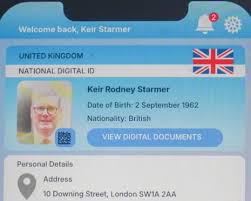Understanding Digital ID Cards Initiated by Governments

Introduction to Digital ID Cards
As technology continues to evolve, governments worldwide are increasingly adopting digital ID cards to enhance security and streamline identity verification processes. The move towards digital identification is especially significant in the context of rising identity theft and fraud incidents. With a digital ID card, citizens can have their identity verified in a secure and efficient manner, reducing the likelihood of fraudulent activities.
The Rise of Digital ID Cards
Countries such as Estonia, Canada, and India have pioneered the implementation of digital ID systems, demonstrating diverse approaches to this innovative solution. For example, Estonia’s e-Residency programme allows global citizens to establish and manage a location-independent business online. Similarly, India’s Aadhaar programme has provided billions with unique identification numbers that enhance access to government services.
Benefits of Digital ID Cards
Digital ID cards offer numerous benefits, including improved access to services, reduced administrative costs, and increased user convenience. These cards can be easily verified online or at physical locations, enabling faster service delivery in healthcare, banking, and public services. Furthermore, they facilitate enhanced data security measures to protect sensitive personal information from unauthorized access.
Challenges and Considerations
However, the transition to digital ID cards is not without challenges. Privacy concerns remain paramount, as many citizens worry about the potential misuse of their personal data and the risk of surveillance. Additionally, the technological divide means that some populations may have limited access to the necessary resources or knowledge to utilise digital ID systems effectively.
Conclusion: The Future of Digital ID Cards
Looking ahead, the significance of digital ID cards is likely to grow as governments seek to modernise and secure identification processes. Continued dialogue between governments and citizens is essential to address concerns about privacy and security. As more nations explore and implement digital identity solutions, we may witness a global shift towards more efficient and secure ways to verify identity. This transformation could redefine how citizens interact with their governments, paving the way for an era of seamless digital governance.
